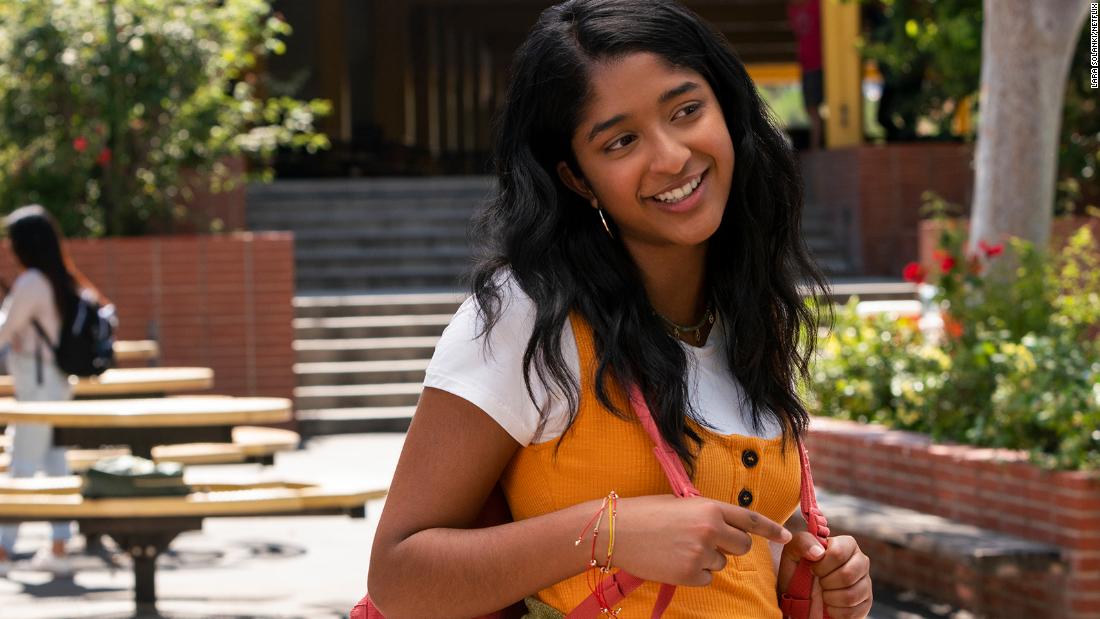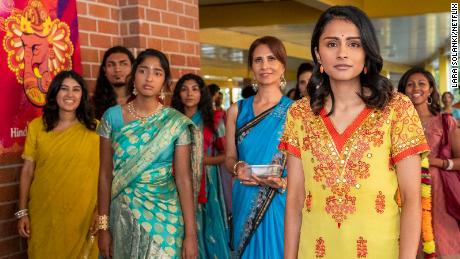1. Devi is seeing a therapist.
This is the most honest relationship Devi has with any grown-up and while we learn later that Devi’s mother Nalini is no fan of therapy, even she opens up in a necessary way.
2. This Indian dad is so loving and sensitive.
Until now, we’ve had Apu in “The Simpsons.” And awkward guys trying to figure out life and love like Aziz Ansari in “Master of None” or Kumail Nanjiani in “The Big Sick” and “Silicon Valley.”
Shown in flashback, Mohan (played by Sendhil Ramamurthy) is a doting father, sharing his love of tennis, ping pong and gardening with his daughter. It’s a refreshing departure from the nerdy, socially awkward engineer or the immigrant father more often cast as strict, overbearing and emotionally distant.
3. Devi plays the harp, not piano or violin.
In a heartwarming scene with a young Devi, Mohan explains how the harp is a much more complex and beautiful instrument. It’s a metaphor, of sorts, for the grief Devi feels when she thinks of the instrument — she was playing it when her father had a heart attack at her school concert.
Never Have I Ever … not seen the preferred instrument of an Asian teen be piano or violin. Well played.
4. This Hindu priest loves the Lakers and goes to Home Depot.
5. These women are not subservient.
Yes, Nalini makes rotis and wants her daughter to be dutiful. But the women in “Never Have I Ever” are fierce — in their ambitions, sexuality, personality. They have secret boyfriends, ride Vespa scooters and shirk convention. As with Mohan’s character, this marks a shift from the usual depiction of South Asian woman in service to her family and culture over herself.
6. She wants to go Princeton — and have sex.
Too often high school dramas draw a line between the nerds and the cool people. Reality is that circles overlap and the teens who cram for their SATs and dream of the Ivy League also crush hard on boys and want to party and have sex. Such is the case for Devi. She is explicit in her vision of having sex and landing a boyfriend in her sophomore year, and approaches the goal with as much fervor (perhaps more) as getting good grades and participating in extracurricular activities. By the end of the series, Devi is spoiled for choice, overachiever that she is.









